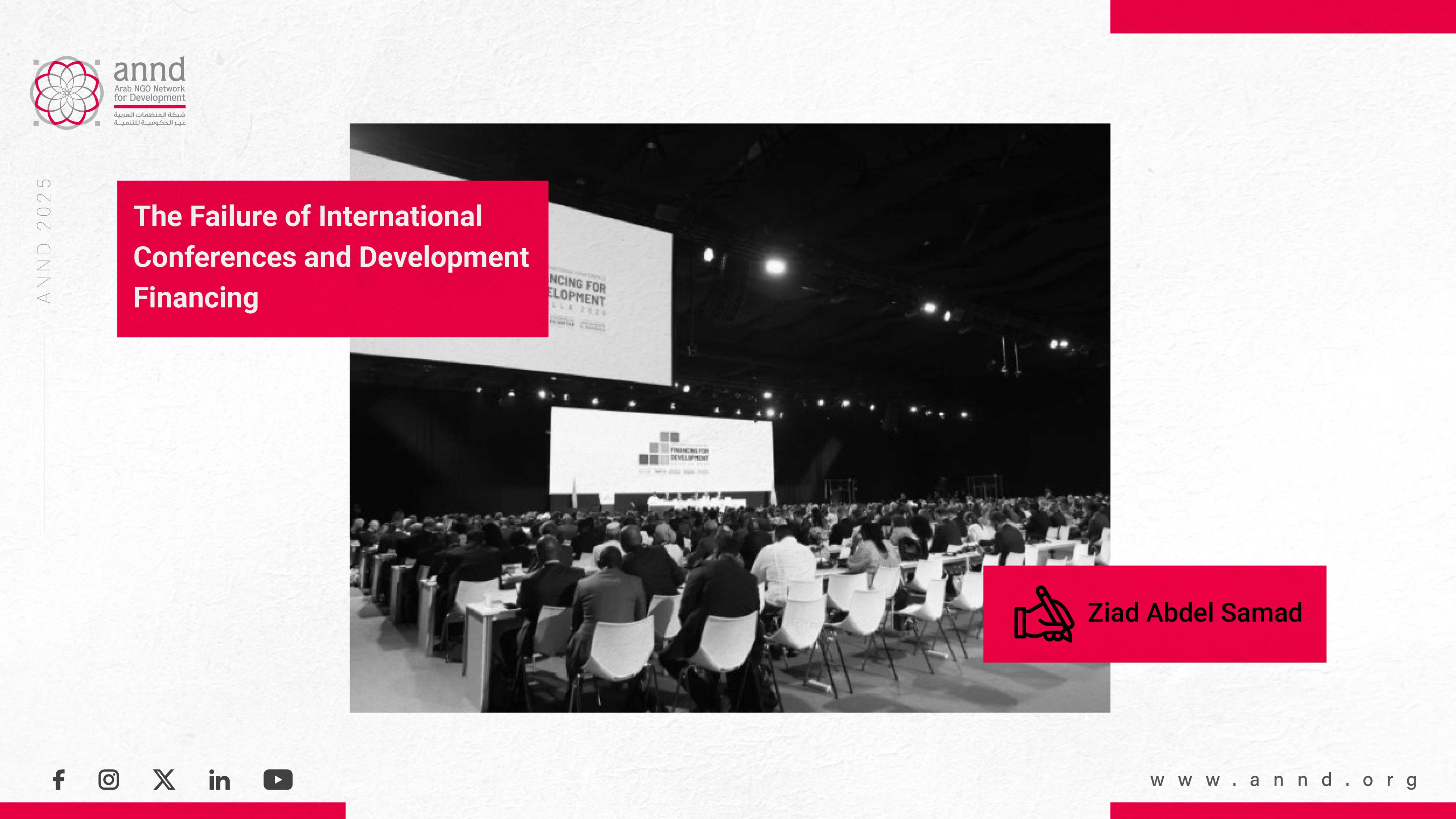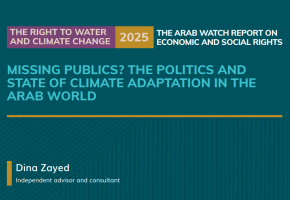
The Failure of International Conferences and Financing for Development - Ziad Abdel Samad
The Failure of International Conferences and Financing for Development: It is time to Seek Solutions from Within - Ziad Abdel Samad
In light of the deadlock in UN initiatives and the absence of international will, should developing countries, particularly the Arab region, continue to rely on foreign partners?
The Fourth International Conference on Financing for Development was convened, and unsurprisingly, the participants failed to reach the desired outcome in addressing the challenges facing the world today. Failure has become a recurring fate for international initiatives across various fields: from climate negotiations where industrialized nations evade their historical responsibilities for emissions causing global warming, to free trade negotiations that have reached a dead end due to these countries adherence to their interests, placing multinational corporations at the heart of their priorities. These industrialized nations themselves were also behind the failure of the "Summit of the Future," held in the summer of 2024 to address global challenges in the areas of development, climate, artificial intelligence, and international peace and security.
From this perspective, the failure of the Financing for Development Conference was not surprising to observers, even though it raised vital issues that should have been addressed with seriousness and responsibility, as they constitute fundamental obstacles to developing countries in their quest to achieve social justice and social security. Among these challenges: the debt crisis that burdens these countries, the unfair trading system that facilitates the dominance of multinational corporations and limits the growth opportunities of developing countries, along with the reduction of international aid due to increased military spending and wars, leading to further fragility and dependence.
Faced with this bleak picture, it is imperative to seek out-of-the-box solutions to pull the developing world out of the cycle of poverty, incapacity, and underdevelopment. These first steps are for developing countries to recognize the importance of coordination among themselves and to strengthen South-South cooperation, which will contribute to adjusting the balance of power in their favor, not only in international negotiations but also in accessing markets and limiting the dominance of giant corporations and major powers at the expense of the welfare and rights of the world's populations.
Declaring intentions to strengthen this cooperation is not enough; rather, concrete steps are required, starting with addressing the internal differences and conflicts fueled by external interests, which keep the region in a cycle of violence and instability, serving the interests of industrialized nations and exacerbating the suffering of the people of the Global South.
Regarding the Arab region, which is burdened by challenges in various forms – from armed conflicts to the Israeli occupation of Palestine and Arab territories – what is required is unifying the efforts of the region's countries, activating the Arab Peace Initiative, adjusting the balance of power through diplomacy, and changing the geopolitical reality. This can only be achieved through genuine political and economic cooperation and through building states based on citizenship, the rule of law, and respect for human rights. There is no point in waiting for solutions from the outside; rather, they must originate from within, through serious and sustainable regional cooperation.
In this context, the role of civil society cannot be overlooked, as it remains a key player in influencing public policies, especially if it manages to organize itself based on a clear vision and specific goals. The diversity of the civil space must be taken into account, where we find traditional and conservative forces that fear change, and others whose interests are linked to those of the authority. However, the greatest responsibility lies with the silent majority of citizens, who pay the price for the crises with their lives and rights. Despite the shrinking civil space in the Arab region, as in other parts of the world, the importance of its required role remains, to adjust the balance of power in favor of state-building, the rule of law, and the protection of rights. Protecting this space from oppression and tyranny, activating dialogue, and promoting the values of respecting others opinions, cooperation, and solidarity, are the way to create balance within society and change the equations.
In light of these complexities on the international scene and the stumbling of UN mechanisms, some emerging alternative initiatives deserve attention. Recently, a number of heads of state – including the presidents of Brazil, Spain, and Uruguay – met in Chile to explore ways to strengthen democracy globally and confront hate speech and extremism. The meeting resulted in a decision to establish a network of countries and civil society to develop mechanisms for cooperation and exchange, which would enhance the principles of citizenship and contributes to the protection of democracy. The participants reaffirmed their commitment to the Financing for Development Conference as a positive step and agreed to follow up on the meetings, with the next meeting to be held on the sidelines of the 80th session of the United Nations General Assembly in New York, with the participation of 20 countries, including Mexico and South Africa, aimed at mobilizing efforts and energies to defend democracy and combat extremism.
This article is part of ANND’s newsletter on FFD meetings in Sevilla.
Recent publications

